 W
WAi Weiwei is a Chinese contemporary artist and activist. Ai grew up in the far north-west of China, where he lived under harsh conditions due to his father's exile. As an activist, he has been openly critical of the Chinese Government's stance on democracy and human rights. He investigated government corruption and cover-ups, in particular the Sichuan schools corruption scandal following the collapse of "tofu-dreg schools" in the 2008 Sichuan earthquake. In 2011, Ai Weiwei was arrested at Beijing Capital International Airport on 3 April, for "economic crimes". He was detained for 81 days without charge. Ai Weiwei emerged as a vital instigator in Chinese cultural development, an architect of Chinese modernism, and one of the nation's most vocal political commentators.
 W
WAngelica Cheung is a Chinese fashion journalist and the founding editor-in-chief of Vogue China, launching its first issue in 2005. Previously editorial director of Elle China and editor-in-chief of Marie Claire Hong Kong, she has played an integral role in the development of China's fashion industry within and beyond her duties as a magazine editor. Cheung will leave her position as editor-in-chief of the magazine after 16 years in December 2020.
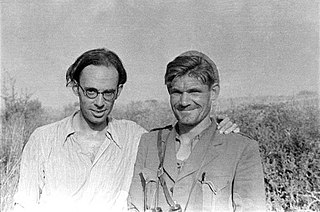 W
WFrancis Claud Cockburn was a British journalist. His saying "believe nothing until it has been officially denied" is widely quoted in journalistic studies, although he did not claim credit for originating it. He was the second cousin, once removed, of novelists Alec Waugh and Evelyn Waugh. He lived at Brook Lodge, Youghal, County Cork, Ireland. Cockburn was "a leading British Communist Party member" and, by the 1940s, he was reputed to be a prominent figure in "the Comintern in Western Europe."
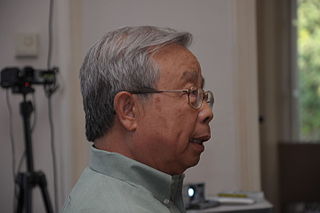 W
WFang Lizhi was a Chinese astrophysicist, vice-president of the University of Science and Technology of China, and activist whose liberal ideas inspired the pro-democracy student movement of 1986–87 and, finally, the Tiananmen Square protests of 1989. Because of his activism, he was expelled from the Communist Party of China in January 1987. For his work, Fang was a recipient of the Robert F Kennedy Human Rights Award in 1989, given each year to an individual whose courageous activism is at the heart of the human rights movement and in the spirit of Robert F. Kennedy's vision and legacy. He was elected an academician of the Chinese Academy of Sciences in 1980, but it was revoked after 1989.
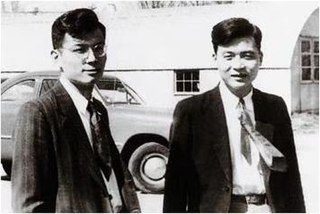 W
WHong Chaosheng was a Chinese physicist best known for studying cryogenics. Hong was the teacher of Zhao Zhongxian, a laureate of Highest Science and Technology Award, the highest scientific award issued by the Chinese Academy of Sciences to scientists working in China.
 W
WHu Shuli is the founder and publisher of Caixin Media. She is also the professor of the School of Communication and Design at Sun Yat-sen University and the adjunct professor of the School of Journalism and Communication at Renmin University of China.
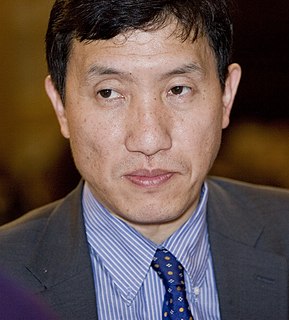 W
WYasheng Huang is an American professor in international management at the MIT Sloan School of Management, where he founded and heads the China Lab and India Lab. His research areas include human capital formation in China and India.
 W
WHung Huang (Chinese: 洪晃; pinyin: Hóng Huàng is an American-Chinese television host, author, actress, blogger, media figure, and the publisher of the fashion magazine iLook.
 W
WIsabel Ingram Mayer, née Ingram was an American tutor to Wanrong, the Empress Consort of Puyi, the Last Emperor of China.
 W
WShu Qingchun, courtesy name Sheyu, best known by his pen name Lao She, was a Chinese novelist and dramatist. He was one of the most significant figures of 20th-century Chinese literature, and is best known for his novel Rickshaw Boy and the play Teahouse (茶館). He was of Manchu ethnicity, and his works are known especially for their vivid use of the Beijing dialect.
 W
WDavid Daokui Li is the Mansfield Freeman Professor of Economics and director of the Center for China in the World Economy (CCWE) at Tsinghua University's School of Economics and Management (SEM). He teaches courses on economic transition, corporate finance, international economics, and China's economy. In 2013, he was appointed the founding dean of the Schwarzman Scholars program at Tsinghua.
 W
WFei-Fei Li is a Chinese-born American computer scientist, non-profit executive, and writer. She is the Sequoia Capital Professor of Computer Science at Stanford University. Li is a Co-Director of the Stanford Institute for Human-Centered Artificial Intelligence, and a Co-Director of the Stanford Vision and Learning Lab. She served as the director of the Stanford Artificial Intelligence Laboratory (SAIL) from 2013 to 2018. In 2017, she co-founded AI4ALL, a nonprofit organization working to increase diversity and inclusion in the field of artificial intelligence. Her research expertise includes artificial intelligence (AI), machine learning, deep learning, computer vision and cognitive neuroscience. She was the leading scientist and principal investigator of ImageNet.
 W
WLi Quan (全莉) is a Beijing-born tiger and wildlife conservationist who lives in London. She is credited with the concept of rewilding in the promotion of tiger conservation. This ensures zoo-born tigers develop hunting and other survival skills in a controlled natural environment prior to their return to the wild.
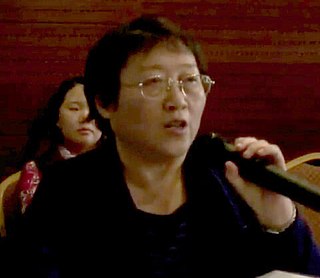 W
WLi Yinhe is a sociologist, sexologist, and activist for LGBT rights in the People's Republic of China. Her main academic interests have been sexual norms in contemporary China, homosexuality, diverse sexual behaviors including sadomasochism, and women's studies.
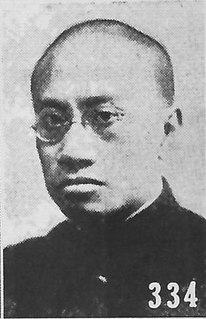 W
WLiang Shuming, born Liang Huanding (梁焕鼎), courtesy name Shouming (壽銘), was a philosopher, teacher, and leader in the Rural Reconstruction Movement in the late Qing dynasty and early Republican eras of Chinese history.
 W
WDiane Wei Liang is a Chinese-born writer living in London.
 W
WLiang Shih-chiu, also romanized as Liang Shiqiu, and also known as Liang Chih-hwa (梁治華), was a renowned educator, writer, translator, literary theorist and lexicographer.
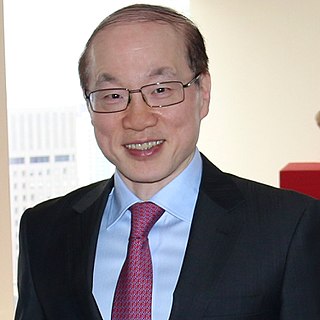 W
WLiu Jieyi is a Chinese diplomat and politician. As of March 2018, he is the current Director of the Taiwan Affairs Office. From 2013 to September 2017, he was China's Permanent Representative to the United Nations (UN) in New York City.
 W
WTa-Chung Liu was a Chinese American economist and econometrician. He was a professor of economics at Johns Hopkins University and Cornell University. During his time at Cornell, he mentored Robert F. Engle, an econometrician who later won the Nobel Prize in Economics.
 W
WLuo Changpei was a Chinese linguist. He made important contributions to the study of historical Chinese phonology. He was also a pioneer of the modern studies of Chinese dialects and of non-Chinese languages in China.
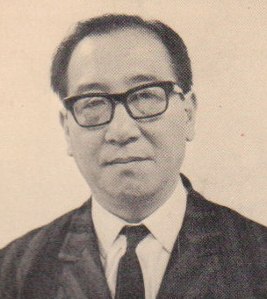 W
WJean Pasqualini was a French and Chinese journalist who wrote a memoir of his experiences as a political prisoner in the Laogai labor camp system. Born in Beijing, Jean Pasqualini was the son of a Chinese mother and a Corsican French father. His Chinese name is rendered as Bao Ruowang, with "Bao" representing the first syllable in Pasqualini and "Ruowang" being a phonetic rendering of Jean.
 W
WShan Sa is the pseudonym of Yan Ni, a French author and painter. The Girl Who Played Go was the first of her novels to be published outside France, and won the Prix Goncourt des Lycéens. Her second novel to appear in English translation was Empress (2006). She was awarded chevalier of the Ordre des Arts et des Lettres in July 2009 and chevalier of the Ordre national du Mérite in May 2011.
 W
WLulu Wang is an American filmmaker. She is best known for writing and directing the comedy-drama films Posthumous (2014) and The Farewell (2019). For the latter, she received the Independent Spirit Award for Best Film and the film was named one of the top ten films of 2019 by the American Film Institute.
 W
WLulu Wang is a Chinese-born writer who has lived in the Netherlands since 1986. She is a best-selling novelist and also a columnist for Shijie Bolan.
 W
WWang Mingdao was an independent Chinese Protestant pastor and evangelist imprisoned for his faith by the Chinese government from 1955 until 1980. He has been called the "Dean of the House Churches."
 W
WWei Jingsheng is a Chinese human rights activist who is known for his involvement in the Chinese democracy movement. He is most prominent for having authored the essay "The Fifth Modernization", which was posted on the Democracy Wall in Beijing in 1978. Due to the manifesto, Wei was arrested and convicted of "counter-revolutionary" activities, and was detained as a political prisoner from 1979–93. Released briefly in 1993, Wei continued with his dissident activities by speaking to visiting journalists, and was imprisoned again from 1994–97, spending a total of 18 years in different prisons. He was deported to the United States on 16 November 1997, on medical parole. Still a Chinese citizen, in 1998 Wei established the Wei Jingsheng Foundation in New York City whose stated aim is to work to improve human rights and democratization in China.
 W
WWu Yinghua (1907–1996) was a famous Chinese teacher of Wu-style t'ai chi ch'uan. She was born in Beijing and died in Shanghai. She was the eldest daughter of Wu Chien-ch'uan, the best known teacher of Wu-style t'ai chi ch'uan. Her older brothers were Wu Kung-i and Wu Kung-tsao.
 W
WWu Zuguang was a Chinese playwright, film director and social critic who has been called a "legendary figure in Chinese art and literary circles". He authored more than 40 plays and film scripts, including the patriotic drama City of Phoenix, one of the most influential plays during the Second Sino-Japanese War, and Return on a Snowy Night, which is generally considered his masterpiece. He directed The Soul of the Nation, Hong Kong's first colour film, based on his own historical drama Song of Righteousness.
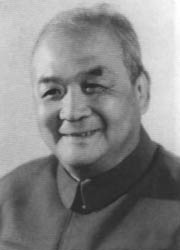 W
WXiao Qian, alias Ruoping (若萍), was a famous essayist, editor, journalist and translator from China. His life spanned the country before and after the establishment of the People's Republic of China.
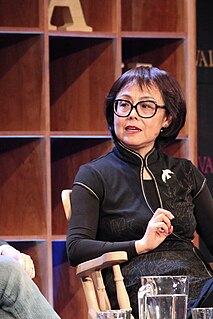 W
WXuē Xīnrán is a British-Chinese journalist, author, speaker, and advocate for women's issues. She was a popular radio personality in China with a call-in program named "Words on the Night Breeze" from 1989 to 1997. The program focused on women's issues and life stories. She was well known for travelling extensively in China to interview women for her work. In 1997, she moved to London and began writing stories of the women she met along her journeys. Her first book, The Good Women of China, was published in 2002, becoming an international bestseller. She frequently contributes to The Guardian and the BBC.
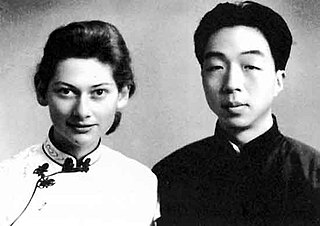 W
WGladys Yang was a British translator of Chinese literature and the wife of another noted literary translator, Yang Xianyi. She was born at the Peking Union Medical College Hospital, Beijing, China, where her father was a Congregationalist missionary, and where from childhood she became intrigued by Chinese culture.
 W
WYang Jiang was a Chinese playwright, author, and translator. She wrote several successful comedies, and was the first Chinese person to produce a complete Chinese version of Miguel de Cervantes' novel Don Quixote.
 W
WFlorence Chia-ying Yeh, also known as Ye Jiaying, Jialing, and by her married name Chia-ying Yeh Chao, is a Chinese-born Canadian poet and sinologist. She was a scholar of classical Chinese poetry. She taught for twenty years at the University of British Columbia (UBC), and has been Professor Emerita since her retirement in 1989. She is a Fellow of the Royal Society of Canada. After retiring from UBC, she has been teaching at Nankai University in Tianjin where she is the founding Director of the Institute of Chinese Classical Culture.
 W
WYing Qianli, also known as Ying Jiliang, was a Manchu Bannerman, a prominent Catholic layman who devoted himself to education. He was proficient in English, French, Spanish and Latin.